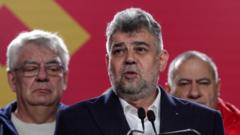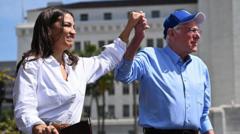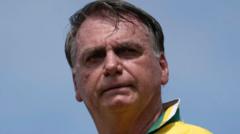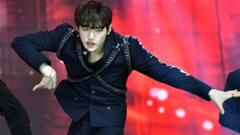As South Korea prepares for its presidential elections on June 3, two main candidates, Lee Jae-myung and Kim Moon-soo, exemplify the stark political polarization resulting from the controversial tenure of former President Yoon Suk Yeol. Both men have navigated significant challenges in their personal and political lives.
Presidential Candidates Seek Unity in Divided South Korea Amid Controversial Leadership Change

Presidential Candidates Seek Unity in Divided South Korea Amid Controversial Leadership Change
The battle for South Korea's presidency reveals deep political divides following the impeachment of Yoon Suk Yeol.
Lee Jae-myung, the candidate from the Democratic Party, rose from humble beginnings as a teenage sweatshop worker to become a front-runner in the election, securing an overwhelming majority in his party’s nomination. He promises to usher in a new era and heal the divisions that have deepened since Yoon's impeachment, which centered around an attempt to impose martial law on the nation.
Conversely, Kim Moon-soo, representing the conservative People Power Party, has aligned himself closely with Yoon's legacy, taking a hard stance during previous controversies surrounding the former president. His previous role as labor minister reinforces his ties to the current party leadership, further complicating prospects for reconciliation as he openly shuns accountability regarding the actions of Yoon's administration.
Both candidates aim to unify a nation marked by their disparities but face skepticism about their ability to bridge the political chasm. The electoral campaign is thus framed more as a referendum on Yoon's controversial decisions rather than a debate over prospective policies.
As the candidates continue their campaigns, the nation looks on, uncertain whether either side can genuinely foster unity in a country recently fraught with upheaval and discontent.
Conversely, Kim Moon-soo, representing the conservative People Power Party, has aligned himself closely with Yoon's legacy, taking a hard stance during previous controversies surrounding the former president. His previous role as labor minister reinforces his ties to the current party leadership, further complicating prospects for reconciliation as he openly shuns accountability regarding the actions of Yoon's administration.
Both candidates aim to unify a nation marked by their disparities but face skepticism about their ability to bridge the political chasm. The electoral campaign is thus framed more as a referendum on Yoon's controversial decisions rather than a debate over prospective policies.
As the candidates continue their campaigns, the nation looks on, uncertain whether either side can genuinely foster unity in a country recently fraught with upheaval and discontent.




















